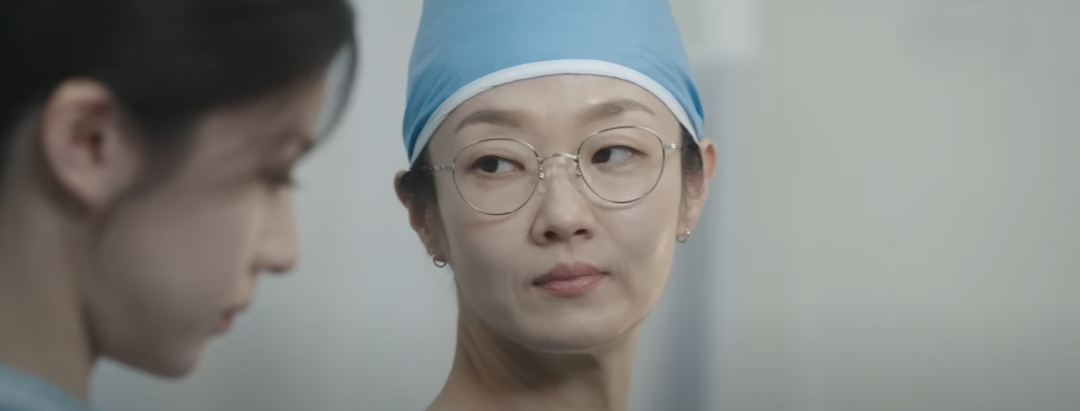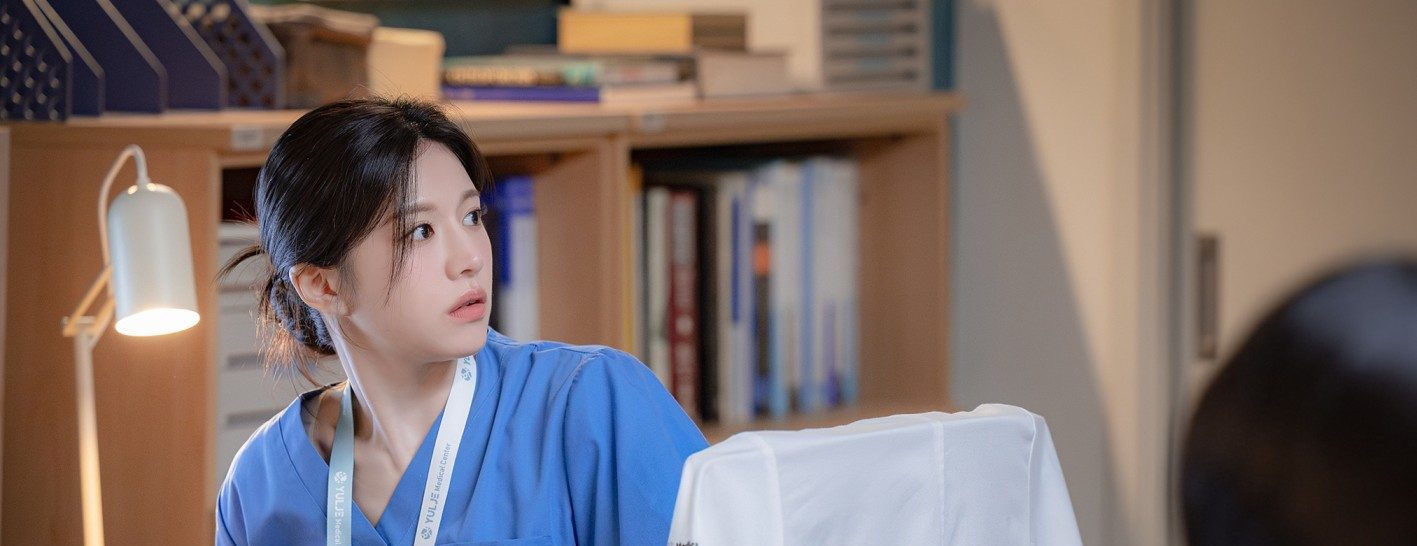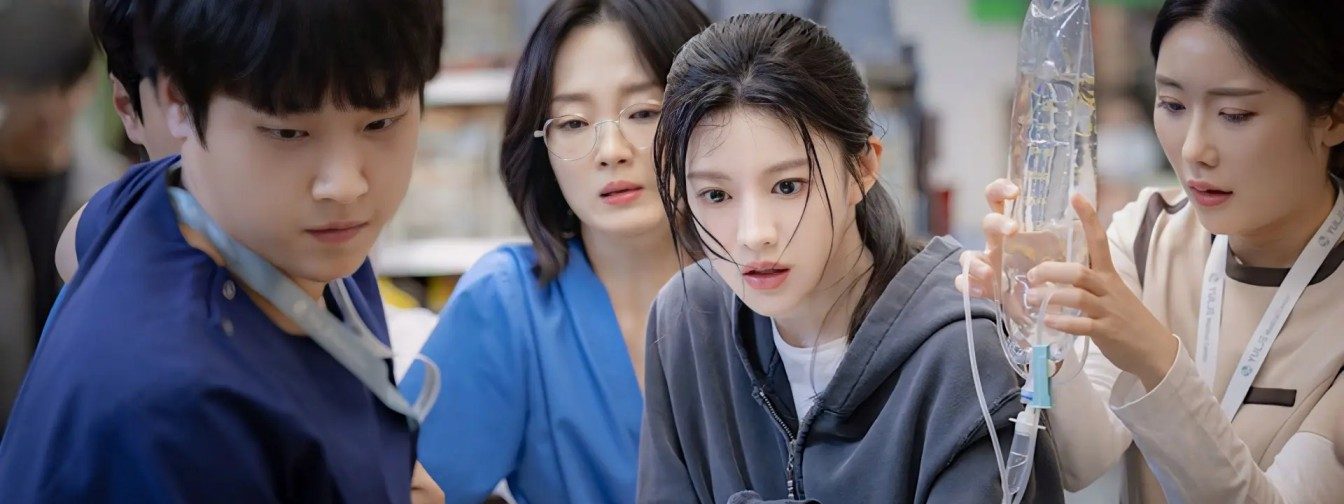Created by Shin Won-ho and Lee Woo-jung, tvN’s ‘Resident Playbook’ immerses viewers in the lives of four first-year residents navigating the intense world of Jongno Yulje Medical Center. Blending humor, heart, and the harsh realities of hospital life, this Korean medical drama captures the essence of what it truly means to step into the shoes of a young doctor. At its core, the series shines a light on the everyday struggles these residents face—be it grueling shifts, demanding senior doctors, or the unrelenting pressure of medical hierarchy. Led by Oh Yi-young, who reluctantly begins her journey at the center, the show’s environment feels deeply lived-in and palpably authentic. The result is a story that feels like a window into the emotional and ethical maelstrom young doctors quietly endure.
Resident Playbook is a Fictional Story that Mirrors Real-Life Challenges
‘Resident Playbook’ is not based on a single true story but draws deep inspiration from real-world issues within South Korea’s medical field. While the specific events and characters of the show are entirely fictional, the challenges depicted are all too real for medical professionals in the country. The series portrays the lives of first-year residents in the obstetrics and gynecology department, reflecting the broader challenges faced by doctors, particularly in this specialized field. The show’s writer, Kim Song-hee, has crafted a narrative that resonates with the real-life struggles and emotional complexities that medical residents experience. From battling exhaustion during long shifts to grappling with the immense pressure to succeed, the journey of residents is one that mirrors the challenges faced by many young doctors today.

Won-ho, one of the creators, explained the show’s core premise in the production presentation: “If the previous work featured more competent doctors, now it will feature first-year residents who are gradually becoming competent. So it can be seen as a youthful growth medical drama.” This shift in focus highlights the series’ intention to capture the gradual evolution of young doctors, offering a glimpse into the often-overlooked and formative stages of their careers. In doing so, Resident Playbook seeks to provide a realistic portrayal of the journey these doctors take as they grow in both skill and confidence, facing setbacks and triumphs along the way.
Reflecting Societal Issues: Declining Birth Rates and Medical Workforce Challenges
The decision to focus on obstetrics and gynecology as the central department of ‘Resident Playbook’ is particularly poignant, given the ongoing societal issues in South Korea. The country is reportedly experiencing a significant decline in birth rates, which has placed immense pressure on the healthcare system, particularly in the field of obstetrics. The show uses this setting to explore the complex and often emotional dichotomy faced by doctors in this field—on the one hand, they bring new life into the world, while on the other, they must also face the difficult task of saying goodbye to patients due to illness or tragedy.

The production team noted in an interview, “The ordinary days and the emotional rollercoaster experienced by doctors, nurses, and patients alike will resonate deeply with viewers.” Through this realistic depiction, ‘Resident Playbook’ provides a deeper understanding of the delicate balance between personal and professional life that medical professionals must maintain when dealing with life and death. The portrayal of these challenges highlights the emotional toll that doctors often experience, particularly those in their early years of practice.
The series also touches on broader societal issues, such as the shortage of medical professionals and the pressure to fill gaps in the workforce. By focusing on the struggles of first-year residents, the show sheds light on the harsh realities that young doctors face as they navigate their way through a demanding and under-resourced healthcare system. These challenges are not only personal but reflect larger systemic issues affecting the medical field in South Korea and around the world.
The K-Drama is Driven by a Fictional Narrative with Real-World Implications
While ‘Resident Playbook’ is ultimately a fictional story, it is deeply rooted in the realities of South Korea’s medical landscape. The struggles faced by first-year residents, the pressures of the medical hierarchy, and the emotional toll of working in the healthcare system are all seemingly based on real-life experiences that many medical professionals have faced. The series not only offers a compelling drama but also serves as a thought-provoking commentary on the challenges of the medical profession.

Weaving together fictional storytelling with real-world issues, ‘Resident Playbook’ provides a nuanced exploration of the personal and professional obstacles faced by young doctors. It sheds light on the pressures of working in a demanding field, as well as the emotional complexities that come with it. Ultimately, the show presents a rich and authentic portrayal of the journey that many medical professionals undergo in their early years, making it a timely and relevant narrative that resonates with audiences both within and beyond the medical community.
Read More: Is Netflix’s Meet the Khumalos Based on a True Story?


